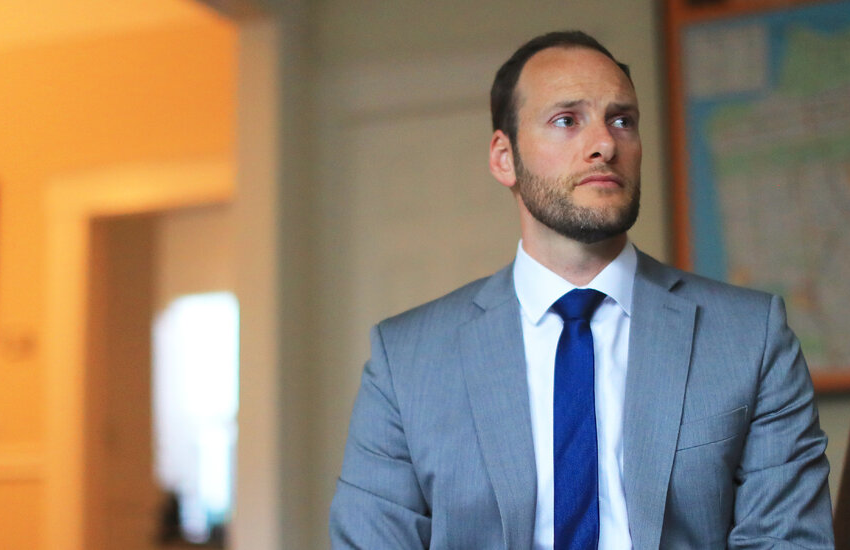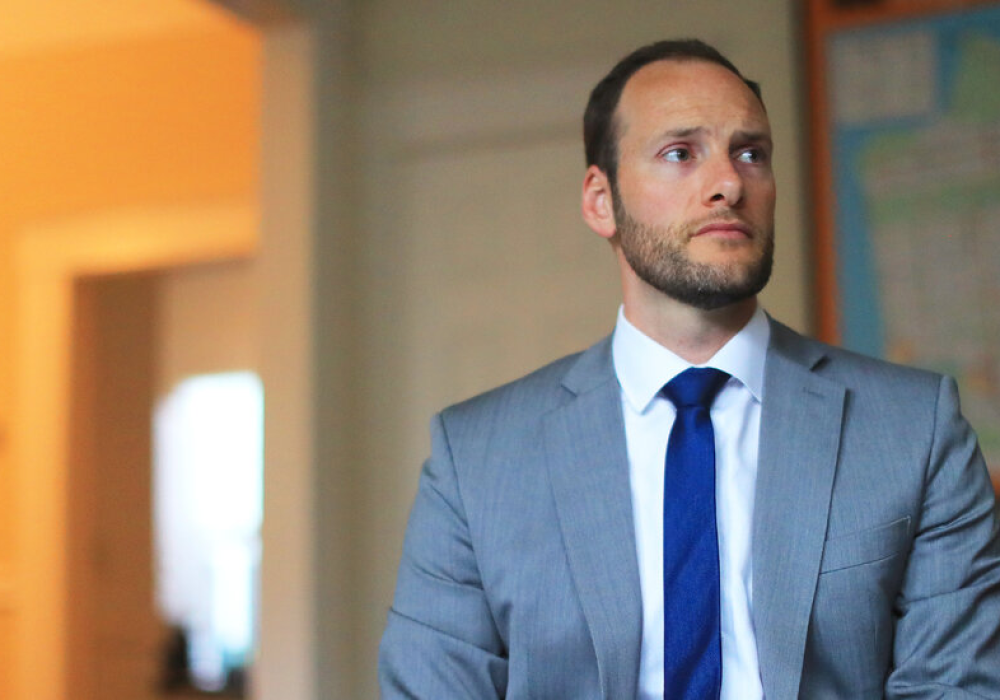Chesa Boudin, the district attorney of San Francisco, will face a recall election next year after a backlash in one of America’s most liberal cities to his policies aimed at reducing the number of people in jails and prisons.
Elections officials in San Francisco certified this week that recall supporters had gathered enough signatures to force an election in June, when Californians will vote in a statewide primary for governor and congressional seats. The district attorney contest will serve as a test of how far liberal prosecutors can go in changing the justice system at a time of rising concerns about crime.
Mr. Boudin, a former public defender whose story of growing up a son of incarcerated parents was central to his campaign two years ago, is among a number of liberal prosecutors who have recently been elected on promises of reducing incarceration and tackling racial bias within the criminal justice system.
But Mr. Boudin, like other liberal prosecutors in places such as Philadelphia and Los Angeles, has faced sharp pushback from conservative activists, as well as other residents concerned about public safety, who say that he is not taking a hard enough line on crime and that his policies have made San Francisco less safe.
Mr. Boudin has also faced opposition from within his own office, which has seen high rates of turnover, with some prosecutors resigning in protest of the department’s policies.
One homicide prosecutor in the office, Brooke Jenkins, who said she supported Mr. Boudin’s efforts to reduce prison sentences and address racial biases and said she identified as a progressive, recently resigned and has supported the recall effort, citing mismanagement and low morale.
“It’s my perception that Chesa lacks a desire to actually and effectively prosecute crime, in any fashion,” Ms. Jenkins said. “While he ran on a platform of being progressive and reform focused, his methodology to achieving that is simply to release individuals early or to offer very lenient plea deals.”
In his time in office, Mr. Boudin has become a polarizing figure in San Francisco, a place where many voters have embraced the notion of transforming the criminal justice system by locking away fewer people but at the same time have grown weary of petty crime and scenes of despair on city streets.
Fears of growing crime have divided the city, even though it has not faced the type of surge in homicides and gun violence that other major cities have experienced since the start of the coronavirus pandemic. Unlike Oakland across the Bay, which is facing a sharp rise in homicides, the primary concerns in San Francisco are property crimes like theft and burglary, and quality-of-life issues like open-air drug dealing and the proliferation of homeless encampments.
“Everybody’s like, why doesn’t the D.A.’s office just scoop these people up and throw them in jail so I don’t have to look at them anymore,” said Lara Bazelon, a professor at the University of San Francisco School of Law who is a supporter of Mr. Boudin. “That’s not how the law works. It is not a crime to be homeless.”
Mr. Boudin framed the recall effort as driven by traditional law-and-order conservatives who want to roll back his efforts, such as not asking judges for cash bail, seeking more lenient sentences and sending fewer juveniles to prison.
“This is clearly about criminal justice reform,” he said. “This is a question of whether we’re going to go forward and continue to implement data-driven policies that center crime victims, that invest in communities impacted by crime, and that use empirical evidence to address root causes of crime in our communities — if we’re going to go back to the failed policies of Reagan and Trump.”
While fears about crime have fueled the recall effort, the data tells a more nuanced story: Major crimes were down 23 percent overall last year, according to the San Francisco Police Department, even as burglaries and auto thefts rose.
Part of the problem, Mr. Boudin said, is that the police are arresting fewer people — an issue that he blames in part on the pandemic because many perpetrators, wearing masks to protect them from the virus, are difficult to identify.
On Tuesday evening, Mr. Boudin was walking out of an event at a local university when a man came up to him and said, “When are you going to start making arrests?”
“I said to him, I’m not going to start making arrests,” he recounted. “That’s not what the D.A. does. We don’t make arrests.”
While some of the big money behind the recall effort comes from conservative donors — the largest donor toward an earlier effort was David Sacks, a conservative venture capitalist and former PayPal executive — the coalition lining up against Mr. Boudin also includes Democrats and others like Ms. Jenkins who identify as progressive but believe that Mr. Boudin’s policies are too radical.
This recall effort comes on the heels of the failed attempt to oust Gov. Gavin Newsom, which was fueled largely by conservative anger over the policies and business shutdowns that the governor used to contain the virus.
George Gascón, Mr. Boudin’s predecessor as district attorney of San Francisco, has faced similar efforts to recall him from office since being elected as the top prosecutor in Los Angeles on a similar promise of reducing imprisonment. A first signature-gathering campaign failed, but a new effort to recall him is underway.












